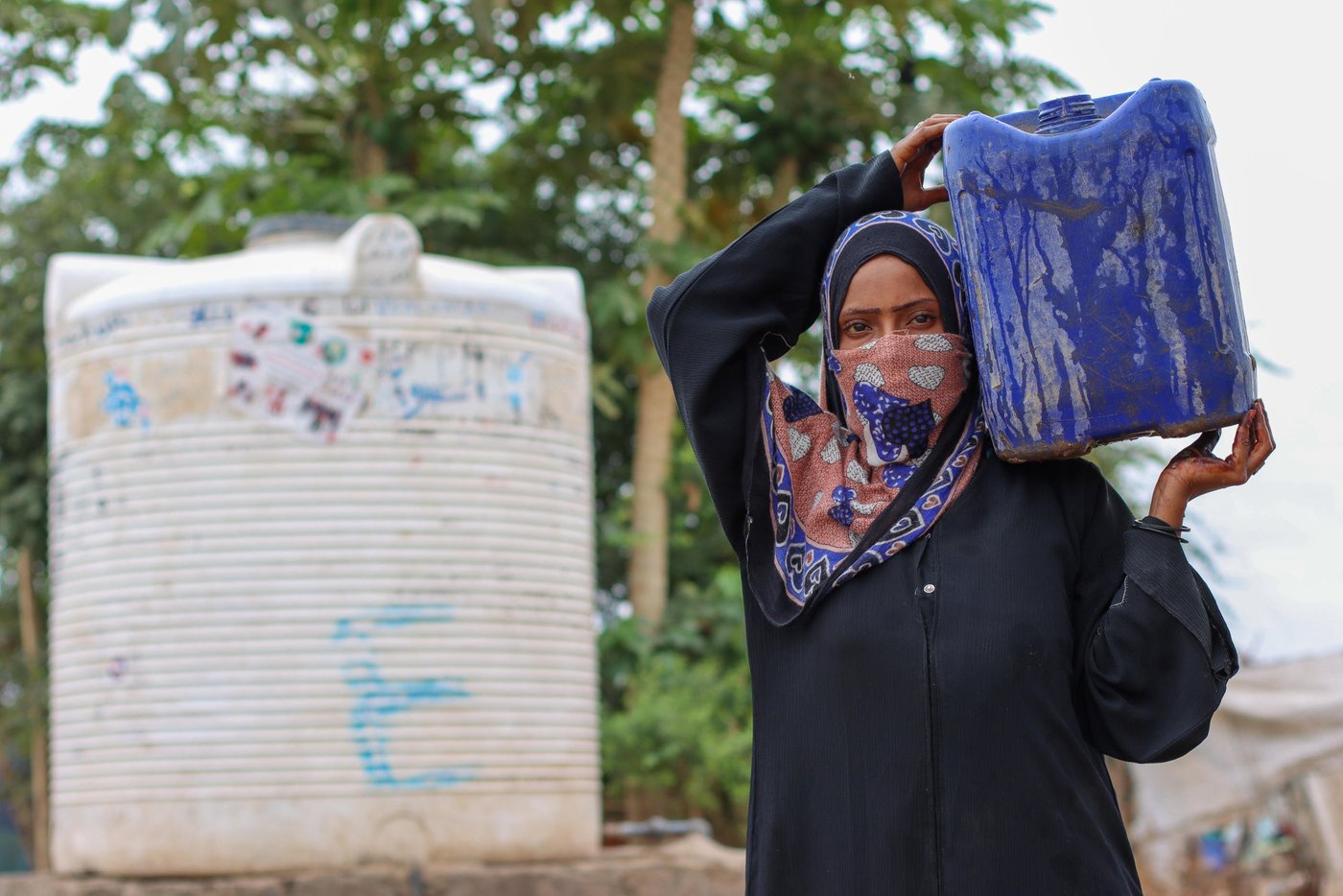Tens of thousands have lost their lives, two-thirds of the population still depend on humanitarian assistance to survive, and four million have been displaced.
A sharp escalation in the conflict marked the beginning of 2022. January alone saw more civilian casualties than all of 2021, with almost one person being killed or injured every hour.
In addition to daily fighting on the frontlines, airstrikes, and cross-border attacks, the conflict is also being fought economically. The different parties try to control commodities, natural resources, trade flows, taxes and fuel revenues. This disproportionally affects civilians.
As a result, the Yemeni currency in the south dropped to an unprecedented low at the end of last year, creating a domino effect on people's lives. Combined with other factors such as inflation and the rising fuel prices, Yemenis are now paying much more for wheat, propane, and transportation in many parts of the country. People earn the same money, but they must pay more for basic things.
Here are seven things that have changed for seven people in the last seven years.
This story was originally published by Al Jazeera on 22 March 2022.
No time for school
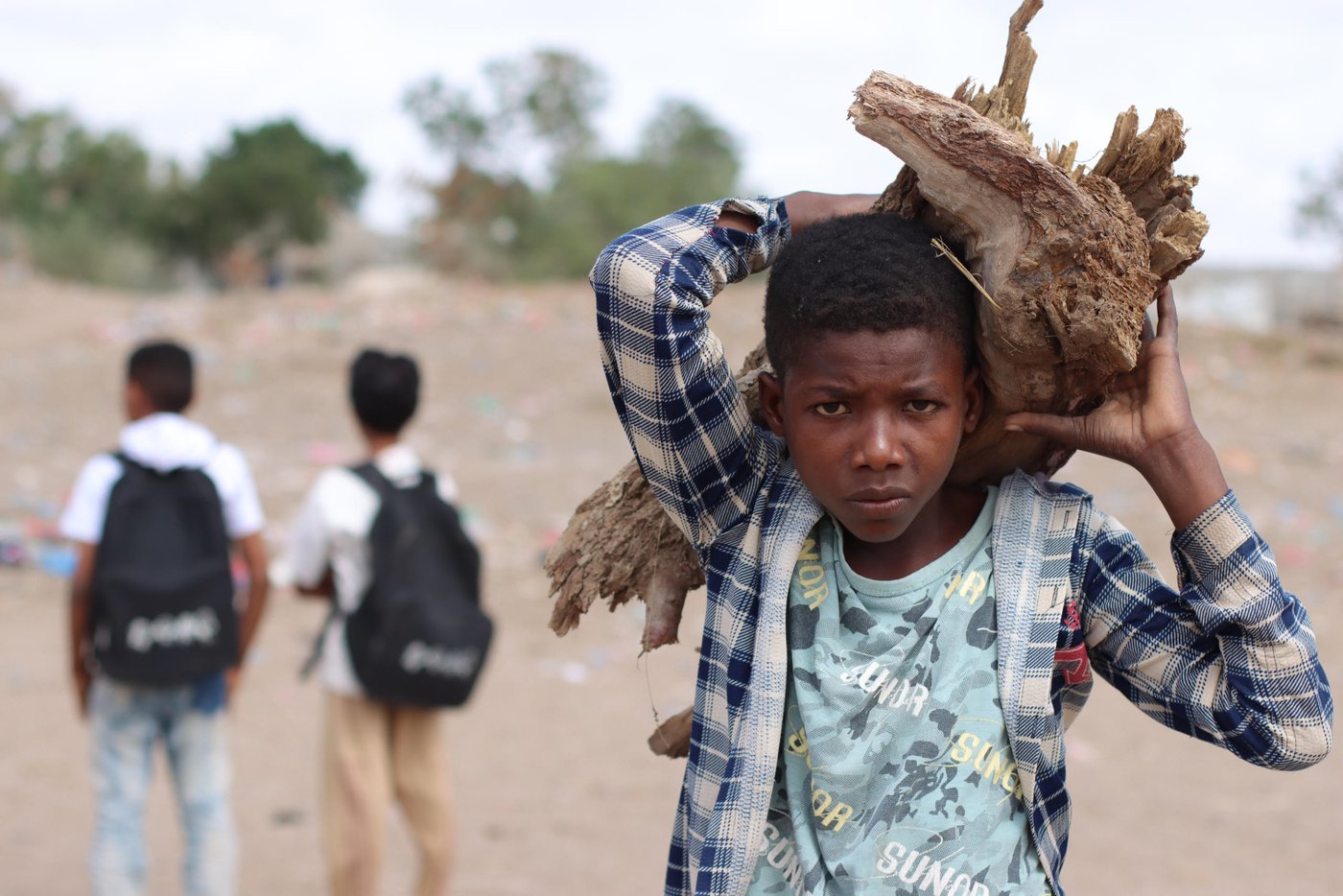
Fadhl Bakar, 13, is carrying firewood back to his tent. He dropped out of school when a battle erupted in his village in 2016, forcing him to flee to another village. He now spends most of his time supporting his family by working.
From propane to firewood
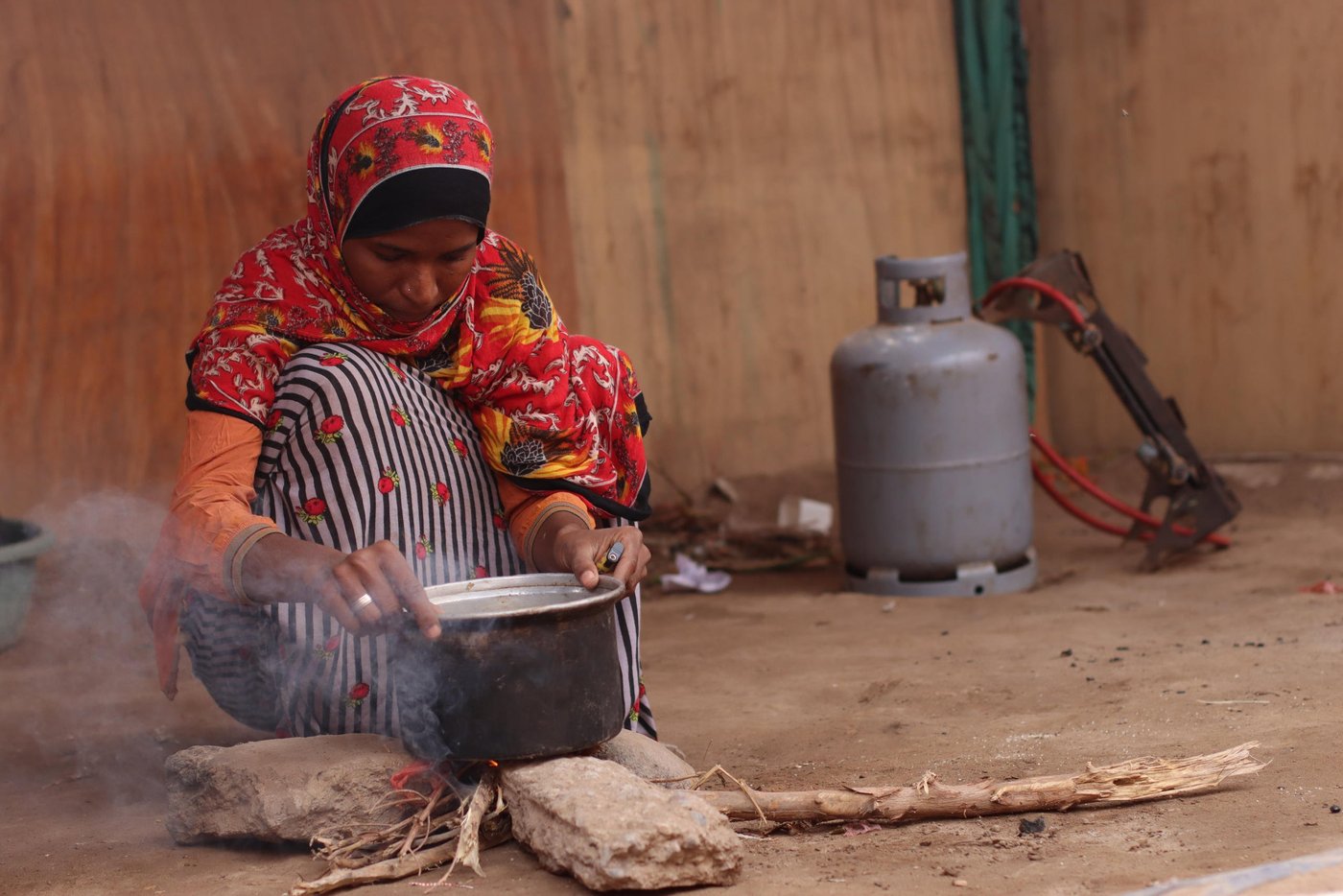
Ghadam Salem, a mother of three, is boiling potatoes that she sells to earn a small income. Before the war, she cooked using propane cylinders. But this is too expensive now. “Propane cylinders have become something that only rich families can afford,” Ghadam says. “Firewood used to be free, it's not anymore, but it's still cheaper than propane cylinders.”
Fetching water after school
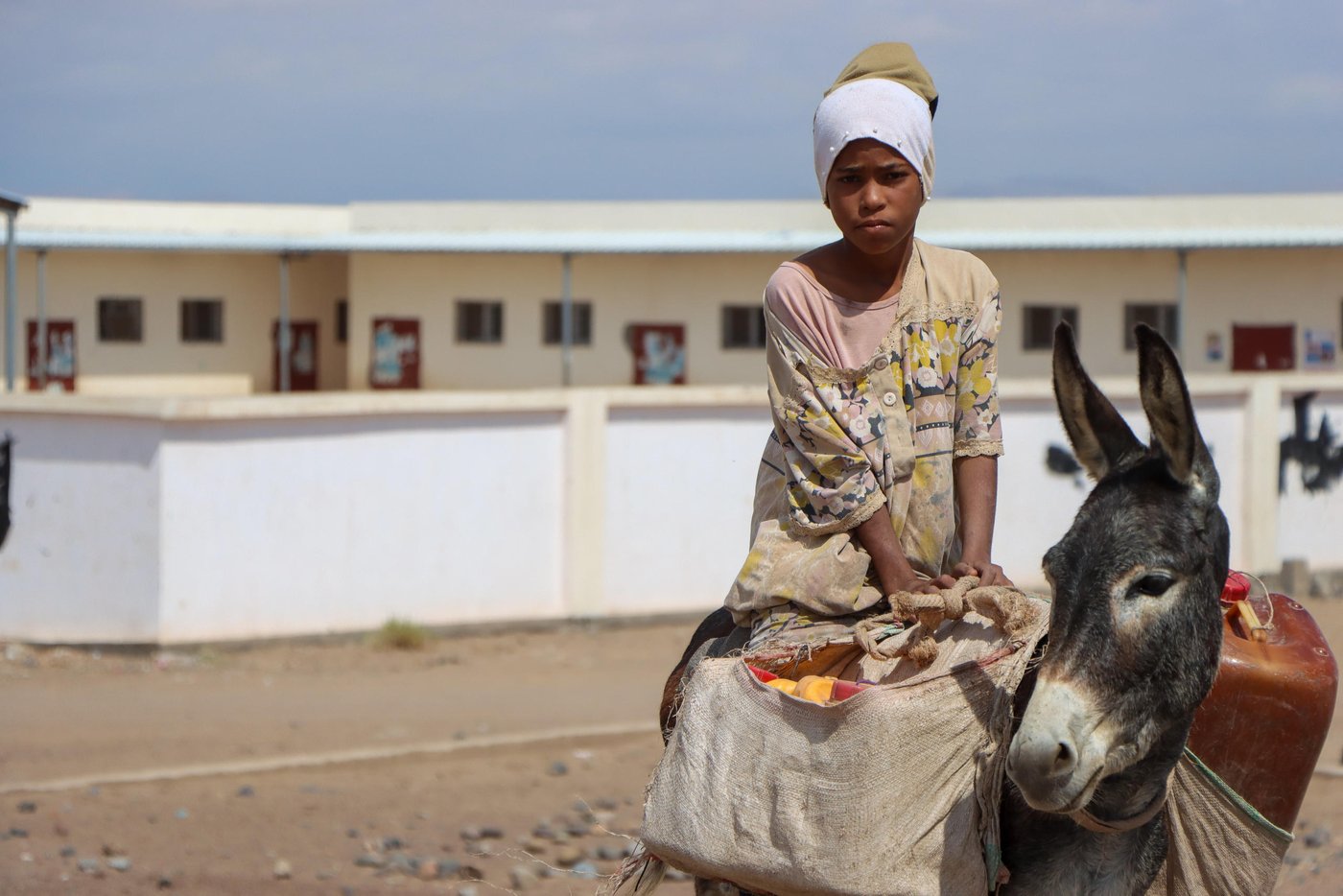
Rahaf Saleh, 11, has to help her family with daily tasks in the camp where she lives. Fetching water in displacement camps in Yemen often falls on women and children. Before or after school, she must carry heavy containers filled to the brim and take them back home on her donkey. “Helping my family is my priority now,” she says.
The black market of gasoline
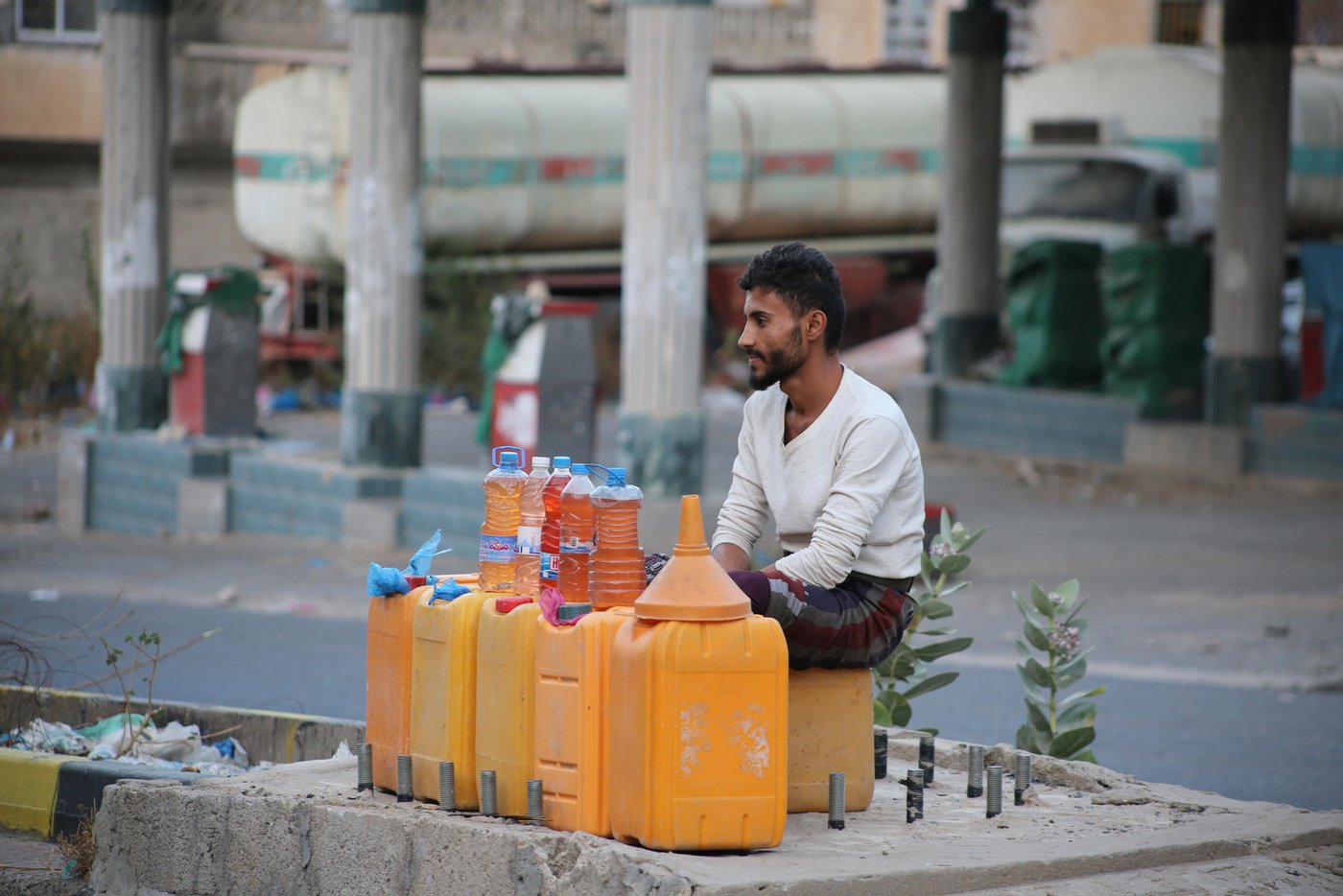
Mohammed Qaid, 20, sells fuel in Taiz city near a closed petrol station. Fuel shortages are common in Yemen and affect cars, hospital generators, and water pumps. Petrol on the black market can be sold for more than two times the official price. “Before the war, I was a student and didn't know anything about fuel,” says Mohammed. “There was no black market. Now I sell fuel on the street. When stations are closed, people depend on the black market to refill their cars and motorcycles.”
Trading a house for a tent
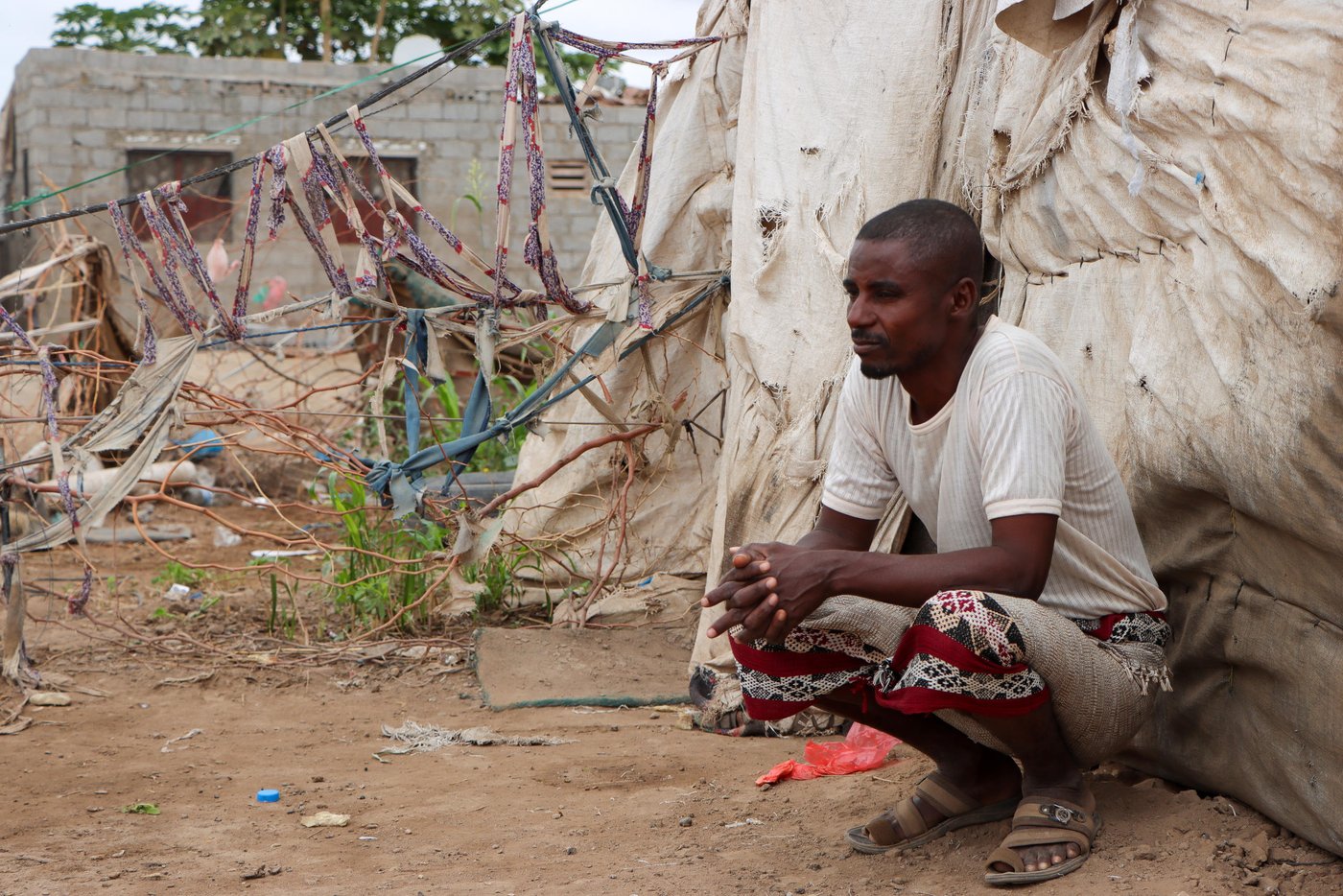
Ameen Abadel, 35, is a father of five. He built his house brick by brick. The house has three rooms, a toilet, a kitchen, and a yard. But his family had to leave it behind when the frontlines moved near his village. The family now lives in a tent, unprotected from the rain, cold weather, wind, snakes, and other reptiles. “In the beginning we thought this would be temporary. That we would get back to our house,” says Ameen. “But it seems we won't. It seems as though the war won’t stop anytime soon.”
From teacher to street seller
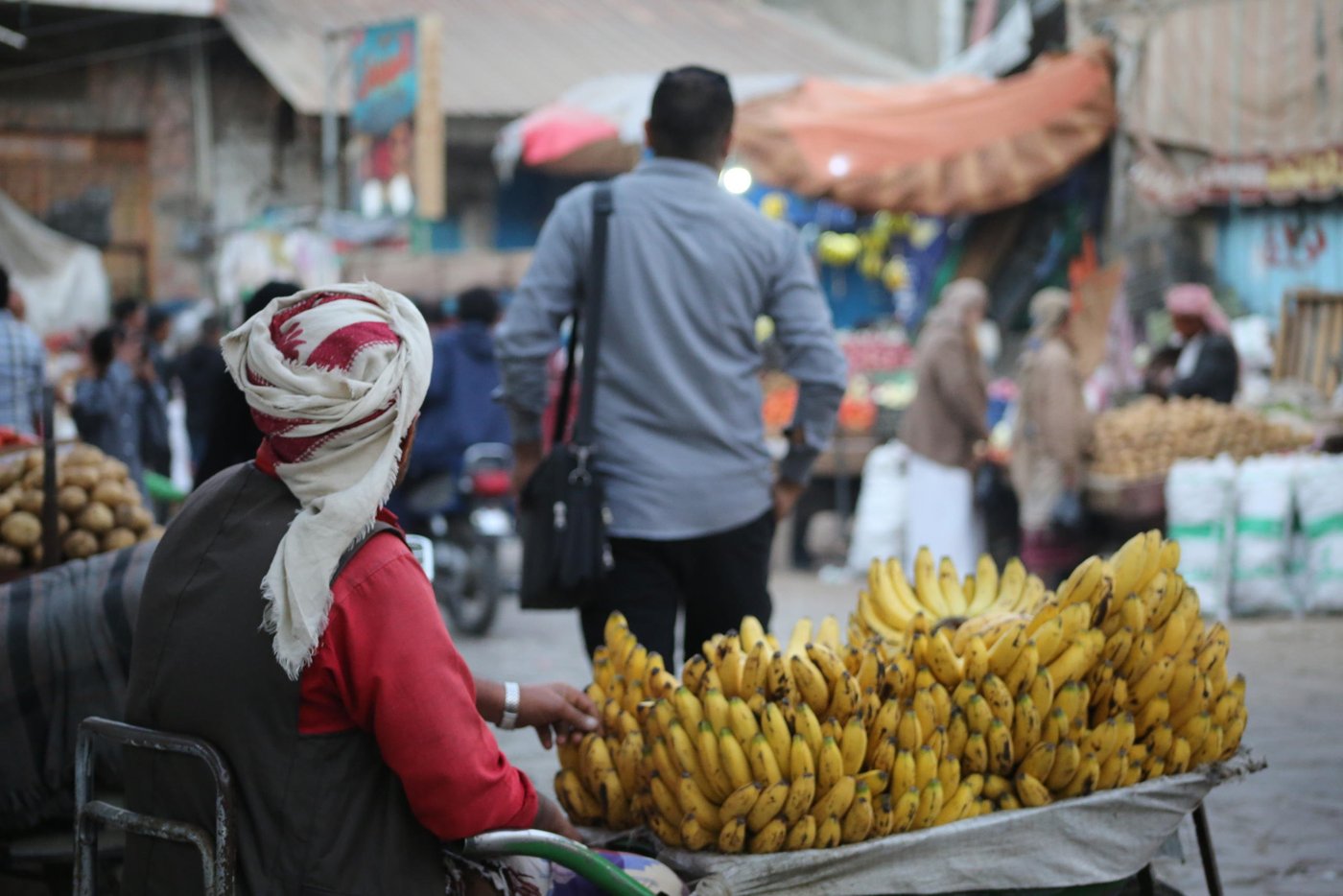
Mustafa*, 38, was a teacher. He is now selling bananas in one of Taiz's markets. According to Save the Children, more than half of Yemen's teachers and education personnel have been forced to find second sources of income, as they have not received regular pay since 2016. “Who could imagine that I would reach this point in my life?” asks Mustafa. “I left my school, and now I am selling bananas. I am in the worst situation, and I can do nothing. But maybe I'm luckier than other teachers who are still waiting for their salary to come?”
Mechanic at 13
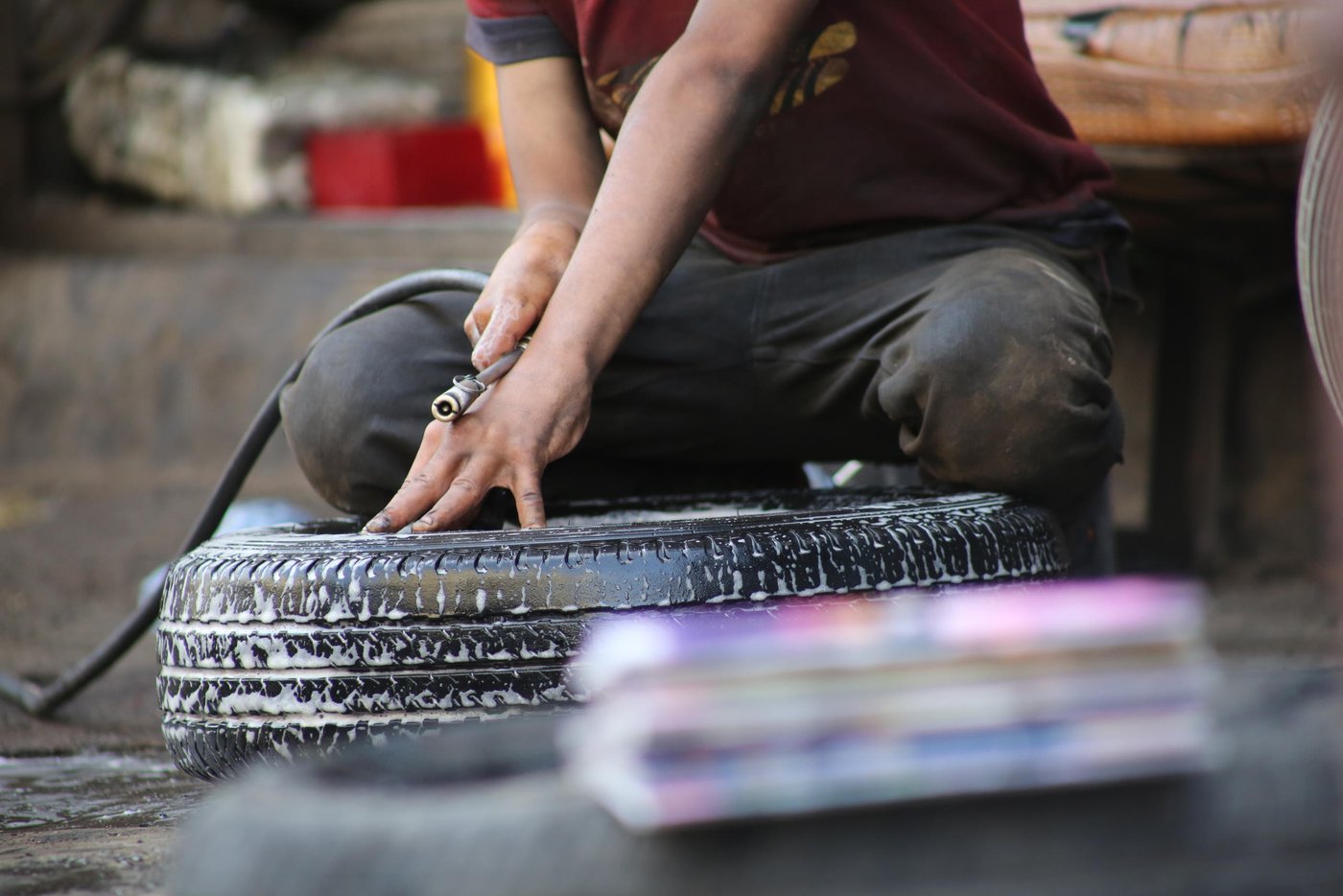
Ahmed* is 13. He goes to school every morning and works as a mechanic in the afternoon and during weekends with his father. The money he earns helps his father pay for his education.
*Names changed to protect identity


